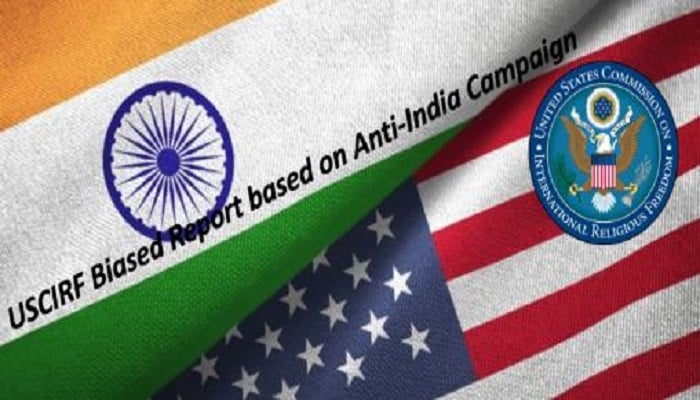USCIRF designates India as a country of particular concern, lauds Pakistan for religious freedom
U.S. Commission on International Religious Freedom (USCIRF) has termed India as a country of particular concern for engaging in severe religious freedom violations.
In its annual report of 2024, it said that during the rule of BJP, policies of religious discrimination were promoted, saying that it had negative effects on Muslims, Christians, Sikhs, Dalits and other minorities.
The Indian government targeted, harassed and destroyed the property of NGOs under UPA, it said and added that the voices of religious minorities and their supporters have been suppressed.
Whereas appreciating Pakistan, it said that the country has made significant efforts for religious freedom, such as the establishment of Kartarpur Corridor, it said, adding that providing the access to Sikh pilgrims is a sign of Pakistan’s commitment.
However, on the other side, attacks on religious minorities have increased in India, including the demolition of mosques and other religious sites.
The USCIRF said that there was violence against Christians, Muslims and Dalits on the charge of cow smuggling. BJP MLA incited violence over cow slaughter.
It further said that Muslim women are being harassed in India, increasing inequality. The Balqis Bano case in the 2002 Gujarat violence raised questions about the justice of minorities. Resultantly, tension increased in Bihar, Uttar Pradesh and Delhi.
The destruction of property of minorities continues in India, consequently, religious tension is increasing.
However, freedom of religious minorities is increasing in Pakistan and minorities have got more representation in the political field in Pakistan, said the USCIRF.
Pakistan has respected the rights of non-Muslim students. The Supreme Court of Pakistan has protected the rights of minorities.
Hindu nationalist groups used social media to escalate tensions. Citizenship Amendment Act and NRC are attempts to marginalize Muslims. 700,000 Muslims in Assam are at risk of citizenship. Pakistan expressed determination to reform the blasphemy law.



